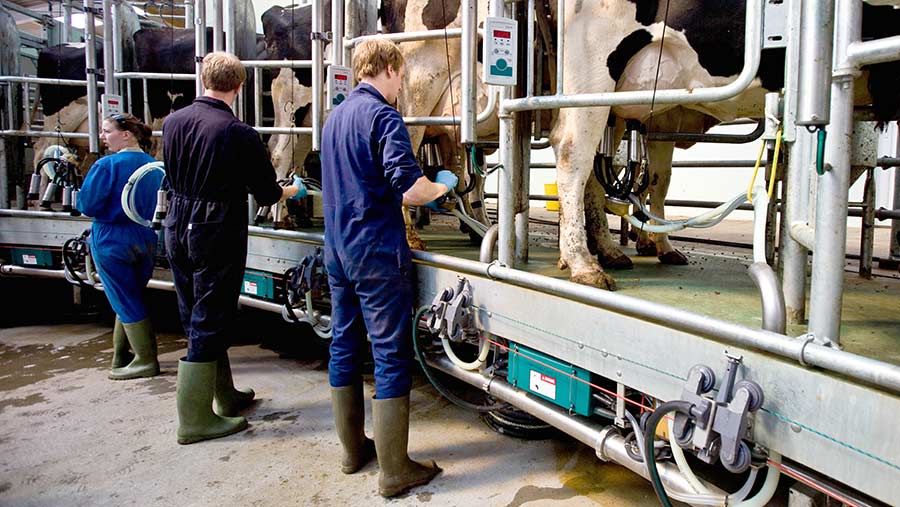Opinion: Retaining good farm staff will come at higher cost
 © Tim Scrivener
© Tim Scrivener Just over a year ago, I wrote about our new recruit from a non-farming background and how, due to Covid, there would likely be a wider pool of people considering careers in agriculture.
This year, the chickens have come home to roost, and we are really struggling to fill vacancies.
I followed my own advice and created an advert, emphasising that experience was less important than a great attitude and willingness to learn, and have been inundated with responses – almost entirely from people who have never set foot in a milking parlour before.
See also: Farmers Weekly’s Ag Student of the Year shares career tips
Care workers, warehouse operatives, teachers and even a policeman have applied for the role.
These people are clearly re-evaluating their lives in the wake of the pandemic, and the chance to work outdoors with animals suddenly seems like an appealing option.
On the flip side, many farmworkers are also rethinking the long hours and moving out of farming into jobs with a perceived better work-life balance.
This, coupled with the exodus of Eastern European workers because of Brexit, has created a well-publicised recruitment crisis across many sectors.
One local cheesemaker was forced to ask his farmers to dump their milk this weekend due to a shortage of tanker drivers.
Limit on training time
Although we are more than willing to train people with no experience, in a small team with more than once vacancy there is a limit to how many trainees we can support.
When they visit the farm, many of the applicants have been surprised at the reality – milking can be a mucky process, calves are separated from their mothers, and we still have to work on Christmas Day.
What do we need to change to make the role more appealing? All farms are going to have to scrutinise their pay and working conditions hard.
People don’t want to work more than 50 hours a week anymore, or to work weekends on a regular basis without significant time off in the week to compensate.
We are probably going to have to employ more people doing less hours and use more relief milkers who each do a few shifts per week.
However, if we are to grow and develop our business, and take time off ourselves, we do need people in senior positions who are able to take more responsibility.
Opportunity to grow
The reason my husband and I got into dairy farming was because of the opportunity to grow our own business. This started with rearing a few heifer calves on the farm where he worked.
To attract entrepreneurial people with real commitment, we are going to have to start offering opportunities like this sooner rather than later.
For anyone who currently has good staff on their farm, my advice is to do anything you can to hold on to them. If they leave, it will almost certainly cost more to replace them, so you are better off giving a pay rise to someone you know and value.
If you can give a worker a small area of the farm to keep some chickens or grow some vegetables, or offer them more days holiday a year, or provide them with a company vehicle, do it.
I still believe that agriculture can offer a great career for those who want it, but it will require greater flexibility from employers, and come at a higher cost.

